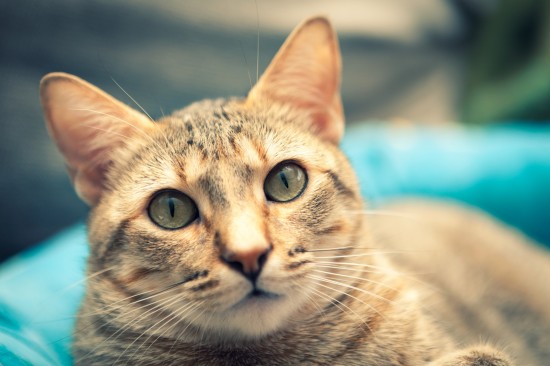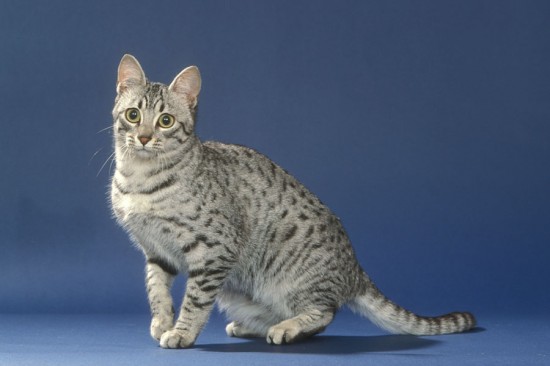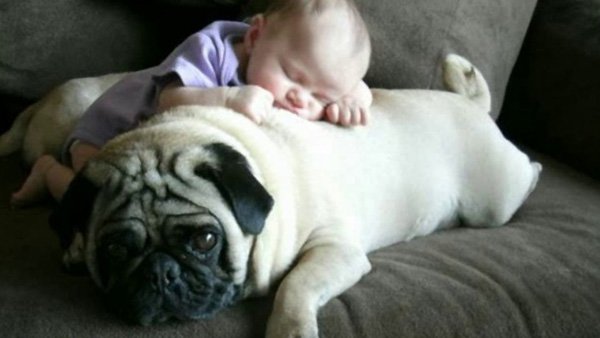

Over the last few years there's been a lot of talk about whether it is safe to vaccinate cats because of the reactions it can trigger in our pets. In order for a vaccine to work they must stimulate a cat's own immune system to protect them from certain diseases and they do this by injecting a similar agent as the disease itself into a cat's system.
Most vaccines will trigger mild reactions which are considered to be normal. However, over time and as veterinary medicine has progressed, these mild reactions are less frequently experienced by most cats. The same can be said of more acute allergic reactions which typically occur very soon after a cat has been vaccinated allowing vets to deal with the problem straight away.
There have been reports of other longer term problems associated with vaccinations, but these have not as yet been proven. With this said, there has been lots of talk about the harmful effects of vaccinating a cat, but in truth it is far safer to have them vaccinated against the most common and often more dangerous diseases that affect our feline friends than not to have them vaccinated at all.
However, one common problem that can occur when a cat is vaccinated happens on the actual site of the injection itself where a sarcoma can develop. This is a sort of cancerous tumour which forms under a cat's skin. If this should happen and the swelling lasts for a few days, you should take your cat to the vet as soon as possible because it's considered to be a severe reaction to a vaccination. The good news is that only one in around ten thousand cats suffer from this type of reaction.
There are several diseases that affect cats for which there are 'must have' core vaccinations, These protect cats from developing what is all too often a fatal condition. Core vaccinations include the following:
This condition is also called feline panleukopenia virus. More often than not it is a fatal disorder which was once one of the biggest killers in cats. However, since the mid 20th century a very effective vaccination programme has meant a decrease in the number of cats affected by this awful disease.
The virus is able to survive for a long time in our environment which is why it is so essential for cats to be vaccinated against this terrible disease. The good news is that one single injection will protect a cat for three years.
The symptoms of the condition are as follows:
There are two viruses which are feline calicivirus (FCV) and feline herpesvirus and both are responsible for causing cat flu. Also known as acute upper respiratory tract disease, the two viruses are very common in the cat world.
Symptoms include the following:
Once a cat has been infected, they tend to be carriers of both viruses even though they may not show any signs of being sick themselves. As such they can infect other cats they come into contact with. The good news is that both these viruses cannot survive in the environment for long periods of time. However, any direct contact with an affected cat will see the viruses passed on to other cats.
Vaccinating a cat against this disease is essential because not only does it help protect the cat themselves, but it prevents the disease from being spread to other cats. The bad news is that even when a cat is vaccinated, they may still get cat flu because there are many strains of FCV.
Note: In the UK, it's recommended that cats have an yearly booster although some people think that less frequent vaccinations are just as effective. With this said, most veterinary practices work to the recommendations laid out by the licensing regulations because if they do not, they could be open to a lawsuit.
There are other vaccinations available that are considered to be less essential and are therefore referred to as non-core vaccinations. These include for the following conditions:
A few cats can fight off the feline leukaemia virus themselves with no veterinary intervention. However, a cat that remains infected typically has to be put to sleep or dies three years after they were first diagnosed as having the condition. This is because of the damage the disease does to their immune systems which then leads to them developing all sorts of other health issues.
The disease is passed from cat to cat by direct contact. Most cats in the UK are vaccinated against feline leukaemia because many vets believe it to be a core vaccination and this has led to the disease being far less widespread than it once was.
This is the feline version of kennel cough seen in dogs, It affects a cat's upper respiratory tract and luckily, when a cat develops the condition it can be very effectively treated with a course of antibiotics. With this said, there is a very good intra-nasal vaccine which can be given to cats if they need to go to a cattery for any length of time.
This is a bacteria that causes conjunctivitis in cats. Luckily, the virus cannot survive for very long in the environment and therefore it is typically only transmitted from cat to cat when they come into direct contact with each other. The infection is more often seen in young cats and in households where many cats living together.
The symptoms include the following:
Vaccinating a cat against this disorder does not necessarily prevent them from developing the condition which means they can still experience a mild case of chlamydophila.
The only real alternative to vaccinations is to not vaccinate a cat, but to treat a condition should they develop. The problem is that many diseases that affect cats are viral and most antibiotics are ineffective. In short, only supportive care can be given to a cat when they develop a disease. If you have any concerns about vaccinating your cat, you should discuss these with your vet who would be only too happy to put your mind at rest.
 More Information On Familial Shar-pei Fever
More Information
More Information On Familial Shar-pei Fever
More Information
 Ten Signs Of Bad Manners In The Dog
Ten Signs Of Bad
Ten Signs Of Bad Manners In The Dog
Ten Signs Of Bad
 Becoming A Registered Cat Breeder
Becoming A Regist
Becoming A Registered Cat Breeder
Becoming A Regist
 Jack Russells And Cataracts
Jack Russells And
Jack Russells And Cataracts
Jack Russells And
 Cat and Dog Boarding Winnipeg - For Better Care and Grooming
Cat and Dog Boarding Winnipeg - For Better Care and Groomi
Cat and Dog Boarding Winnipeg - For Better Care and Grooming
Cat and Dog Boarding Winnipeg - For Better Care and Groomi
Copyright © 2005-2016 Pet Information All Rights Reserved
Contact us: www162date@outlook.com